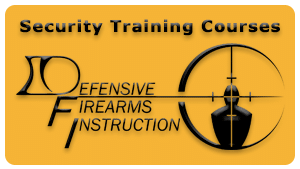General Weapons Maintenance
More often than not, I see people fire their everyday carry pistol the least out of all of their firearms.
This is not the best habit to get into as we should train the most with the firearm that we carry the most.
That being said, if we are not shooting our everyday carry pistol that often, how often should we be cleaning it?
My general rule is to be cleaning my everyday carry pistol at least once every 2 months, whether I have fired it or not.
If I am firing it, I clean it after every range day.
My philosophy is that if I may need to rely on it to defend my life, I would prefer to have a clean firearm to reduce the probability of any malfunction occurring.
Firearms, especially ones carried on your person every day will collect an immense amount of dust, lint, etc. which is why it is beneficial to find that nice balance between properly lubricated and over-lubricated as an excess of lubrication will act as a magnet for dust and lint and can potentially cause a build-up which can subsequently cause a malfunction.
Many people don’t clean their firearm after every use which is perfectly fine, especially if you are not firing hundreds of rounds that day.
Often times I will go out and shoot a PQC once or twice and that will be all the shooting I do that day.
If I am only shooting 25-50 rounds I don’t really need to clean my range pistol immediately, it isn’t going to be so dirty that it could induce a malfunction.
I do however recommend that you clean your pistol after 200-250 rounds.
Another consideration when it comes to maintenance would be the type of ammunition that you are running through your firearm.
Aluminum cased ammo is perfectly fine for the range, however, the density of the casing is substantially less than that of your pistols extractor.
This won’t damage your firearm, but your extractor will chip flakes of aluminum off of the casings as it is extracting spent cartridges from the pistol and can get a build-up around the extractor.
When cleaning after using this type of ammunition you want to pay extra attention to the extractor, if you don’t clean it properly it could fail to extract a spent casing in a self-defense situation.
Steel cased ammunition is also popular at ranges due to the cheap cost.
There are a couple of issues that you should pay particular attention to if you are using steel cased ammo, the first is that steel has a higher density than that of your extractor which can cause the casing to chip away at your extractor or even cause it to break after extended use.
The other issue is that steel-cased ammunition has a lacquer finish to keep the casing from rusting and corrosion.
If you are using steel cased ammo on the range, your chamber temperature will rise as you are firing which can cause the lacquer to finish to melt.
If you have a round chambered and you allow it to cool, the lacquer can bond itself to the inside of the chamber which can make it difficult to extract the round.
After using steel cased ammo I recommend paying extra attention to cleaning the chamber thoroughly.
Some other things to consider are what you are using to clean your firearms.
You spend upwards of $500 on your firearm, the last thing we want to do is get cheap cleaning equipment and potentially damage or scratch the finish off of your firearm.
Cleaning kits can be purchased as a pre-made package, you can get them for pistol calibers and for rifle calibers, or you can assemble your own for your specific firearms.
Either way is perfectly fine, there are a bunch of tutorials online about doing so and I recommend watching a few before building a cleaning kit if you have limited experience.
A couple of the do’s and don’ts worth mentioning though: AP brushes (all-purpose) are a great tool; I use them all of the time.
There are nylon brushes, copper brushes, and steel brushes and they usually come in packs with 10 plus nylon, 4 or 5 copper, and a few steel.
My recommendation: throw the steel away or donate them to your local gunsmith.
The steel brushes are usually used to purposely remove the finish off of firearms for gunsmith work.
Stick with the nylon and copper brushes, I primarily use the nylon and have no issues.
There are both plastic and metal cleaning rods; either is fine but I recommend plastic for beginners.
If you get a bad angle and jam it into the barrel, there is less of a chance that you will damage the rifling in the barrel with a plastic rod.
Bore brushes are worth mentioning as well, there are nylon bore brushes and there are copper bore brushes.
Copper bore brushes are caliber specific whereas nylon bore brushes are not caliber specific (I.e. with nylon bore brushes you would use the same brush for a .45 auto as a 9mm).
You only want to use a copper brush specific for your caliber or you could damage the barrel.
There are also great tutorials on YouTube for cleaning firearms and I highly recommend watching a few before cleaning your firearm for the first time.



